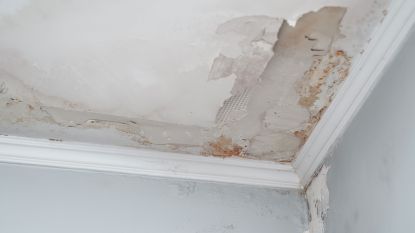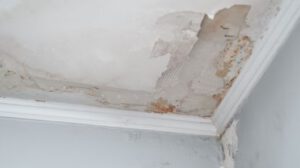When a pipe bursts or your toilet backs up, you need Plumber Granada Hills right away. These problems can cause severe water damage and threaten your family’s health.

Choosing the best emergency plumber is essential to minimize damage and costly repairs. Here are some tips to help you choose the right one.
Drain clogs are one of the most common reasons homeowners call for help. They can cause wastewater backup and other serious problems if left untreated for too long. Fortunately, they’re also easy to fix with some simple DIY methods. But don’t try to use over-the-counter products without first consulting a plumber! These chemicals can damage your pipes and lead to expensive repairs.
One of the best ways to prevent clogs is by regularly cleaning your drains with a natural solution of baking soda and vinegar. Mix equal parts of each and pour them down the drain, letting it sit for up to an hour. It should break down and dissolve the clog, allowing water to flow freely through your pipes again.
If you’re dealing with a particularly stubborn clog, try using a plunger. Remove the drain stopper, then use the plunger to push and pull, forcing water up and down the pipe. Repeat as needed until the clog is gone. If the clog persists, try removing the trap cover and inspecting it for hair, animal fur, stringy materials or other objects that may be stuck inside. You can also try a plumbing snake (also known as an auger). These devices are long metal cables that run down your drain, twisting as they go to grab and pull out the clog. You can buy them at most home improvement stores.
If you still can’t get the clog to go away, it’s time to call in an emergency plumber. They’ll be able to determine the source of your clog and recommend a course of action to eliminate it. In the meantime, be sure to practice proper maintenance and keep an eye out for things that shouldn’t go down your drains — like tampons, toilet paper or “flushable” wipes! It’s much easier to prevent clogs than it is to repair them. It’s also much cheaper than repairing the damage that can result from a prolonged drain clog. That’s why it’s important to make preventing them a priority in your household.
Frozen Pipes
Frozen pipes are a common winter issue that can lead to massive water damage if left untreated. Fortunately, frozen pipes are easier to address than you might think. First, make sure that no water is flowing through the affected pipe. You can do this by checking the faucets and toilets in your home for water flow at normal pressure levels. Also, be sure to shut off your home’s main water supply (typically located at the water meter or where the main line enters your house). Next, try to locate the frozen pipe. You may be able to see it or feel it with your hands, but you can also check behind furniture where pipes might run or in attics and crawl spaces. Often, these areas are colder and less heated than the rest of your home, which can cause them to freeze more easily.
You can also check for signs of frozen pipes in your kitchen, such as a buildup of frost around the bottom of a sink or a thawed spot that appears as a crack in the wall near a faucet. In addition, you can open any cabinet doors that contain pipes and turn on the faucets connected to them to relieve pressure and help thaw the pipe. You can also use a hair dryer, heat lamp or space heater to warm the frozen pipe and help it melt. Just be careful not to touch the exposed pipe directly, as this can create further damage.
Once you’ve done everything you can to thaw the frozen pipe, you can call an emergency plumber to fix the problem and ensure that there isn’t any further damage caused by the freezing and thawing process. When you’re looking for an emergency plumber, be sure to find one who is nearby and can arrive at your property as quickly as possible. It’s also a good idea to choose a plumber who has experience in handling plumbing emergencies, as they’ll be more likely to know how to handle the situation effectively and efficiently.
Finally, after the emergency plumber has fixed the problem and checked for further damage, be sure to take pictures of the area (including any personal items that might have been affected) before they leave. This will help you file a homeowner’s insurance claim if necessary and will be important when it comes to determining the scope of the damage.
Burst Pipes
One of the worst things that can happen to a home or business is a burst pipe. It creates flooding and water damage, ruins furniture and other items, and can cause mold and mildew. When a pipe bursts, it’s important to call an emergency plumber right away. This helps minimize the damage, prevents health and safety issues, and ensures that the pipe gets fixed properly.
If you notice a sudden increase in your water bill, this could be a sign of a leak in your pipes. These issues are usually caused by corrosion, clogs, or just age and wear. If left untreated, these problems can lead to massive water damage in your home or business, which will require expensive repairs.
To prevent these problems, you should have your plumbing system regularly inspected by a professional plumber. They can find problems before they become serious and save you a lot of money in the long run.
The first thing to do when a pipe bursts is to shut off the main water supply. This will stop any new water from entering the pipe system and will make it easier to figure out how to curb the damage. It’s also a good idea to move any furniture or other items away from the affected area, as this will help reduce the amount of water damage and prevent mold and mildew.
Next, you should try to locate the burst pipe and clean up any puddles that may have formed. This is especially important in high-rise buildings, as floodwater can reach multiple floors. You should also take pictures and videos of any water damage to help document the problem for your insurance company if necessary.
An emergency plumber can fix a variety of plumbing problems, from small leaks to major pipe bursts. By following these tips, you can keep your plumbing in good condition and avoid the need for emergency services. However, if you do need an emergency plumber, make sure to choose a reliable and experienced professional. They’ll be able to solve your problem quickly and effectively.
Water Heater Failure
The last thing you want to deal with is a plumbing emergency that leaves your home without hot water. This is a major inconvenience that can leave you with cold showers and the prospect of having to pay for costly water damage repair. It is important to recognize the warning signs that your water heater is about to fail, and take steps to address them before they become a crisis.
When you need to call a plumber for an emergency, look for one who offers emergency services 24/7, including weekends and holidays. They should be able to provide you with a quick response, and should also have the tools and skills needed to fix your problem quickly and efficiently.
It is also important to find a plumber who is licensed and insured. This will protect you from being scammed by unlicensed or dishonest plumbers who charge inflated rates for simple repairs. It is also a good idea to choose a plumber who is local to your area, as they will be more likely to respond to your call quickly and will be able to get to your location before the issue gets worse.
One of the most common plumbing emergencies is a failing water heater. If you notice that your water is no longer as hot as it used to be, or that it is rusty or discolored, you may need to replace your heater. These are signs that the sediments in the tank have accumulated to the point that they are preventing the burner from passing heat into the water.
If you have no hot water, it is usually a sign that the heater has burned out or that it is leaking. Turning it off and on can sometimes reset the thermostat, but if the problem persists, you should call for assistance.
When you need a plumber, be sure to look for a licensed professional who is experienced and available at the time of your plumbing emergency. Choosing a plumber who is licensed and insured will ensure that your problems are handled safely and efficiently, and will prevent any potential damage to your property.



